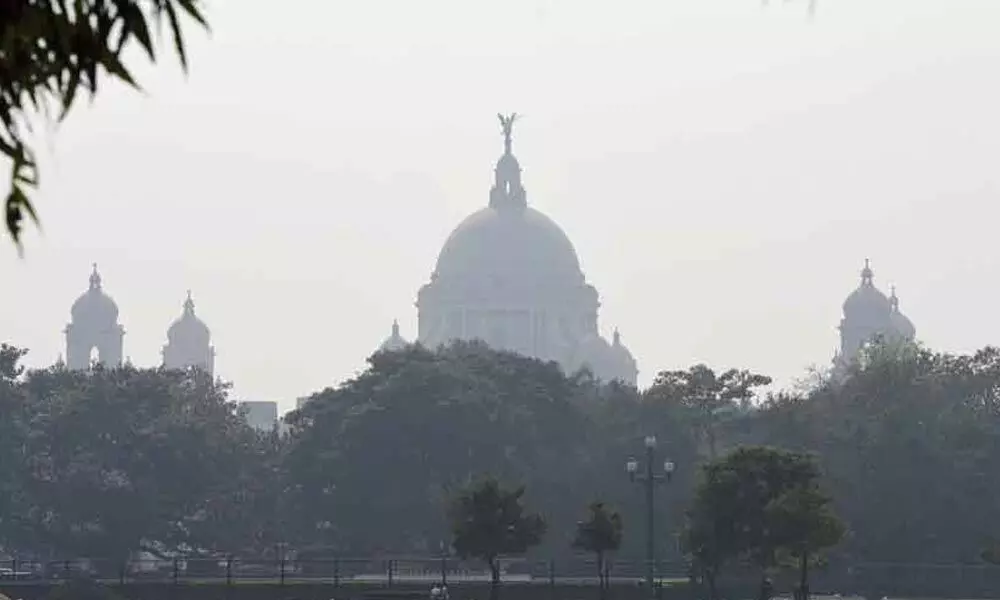Weather conditions likely to deteriorate Kolkata's air quality
It’s time to wake up, for sure. Kolkata metropolitan city may not be as polluted as Delhi NCR, but it is still emerging as the second most polluted Indian metro city, going by a World Health Organisation (WHO) study.
image for illustrative purpose

It's time to wake up, for sure. Kolkata metropolitan city may not be as polluted as Delhi NCR, but it is still emerging as the second most polluted Indian metro city, going by a World Health Organisation (WHO) study. The air quality in Kolkata still remains very bad with millions of inhabitants facing severe health risks. Significantly, air quality of the region has been deteriorating day-by-day post Diwali this year. The recent dip in temperature since last month has been accompanied by a worsening of air quality. The AQI (air quality index) in Kolkata is currently around 226 in the month of November 2021. Based on PM 2.5 concentration for the past couple of years, the region is expected to witness - high levels of pollution in the coming months. Poor air quality in urban areas of Kolkata is surely a national concern, especially given the climate vulnerability in parts of eastern India. Various studies had earlier concluded that heavily polluted cities may achieve the benefit of long term national and local air pollution control measures, and such local policies are also crucial for mitigating and adapting to global climate change.
Scientists feel that the concentration of the ambient air pollutant not only depends on the intensity of its emission but also on meteorological conditions. The wind speed and its direction are important parameters that significantly impact the concentration of the pollutants in ambient air for the region. This is a crucial factor for the entire Indo-Gangetic plain region, particularly regions of West Bengal. According to meteorologists, an anticyclone weather pattern was predicted to develop over the region. Such scenarios have been responsible for intensifying the pollution levels during winters. The current weather conditions in Kolkata and adjoining areas of West Bengal can only be compared with that of in 2018. Chances are that the conditions may become severe around the Christmas Day in 2021, which is barely 20 days away.
Consequences of not acting immediately will be catastrophic, for sure. Already millions of schoolchildren have compromised lung capacity and would never completely recover. There are a number of diseases that have direct linkages to air pollution especially common lung disorders, Chronic obstructive pulmonary disease (COPED), Asthma etc. Besides, it also increases mental disorders in children like attention-deficit hyperactive disorder such as aggression. Going by another study, on an average, people in India would live 5.9 years longer if their country met the WHO guideline. Since life expectancy at birth is currently 71 years in India, this suggests that reducing particulate pollution to the WHO guideline throughout the country would raise the average life expectancy substantially. In comparison, resolving unsafe water and sanitation would increase the average life expectancy to 72. As a nation we have the world's highest rate of death from respiratory disease and we must act before it's too late.

